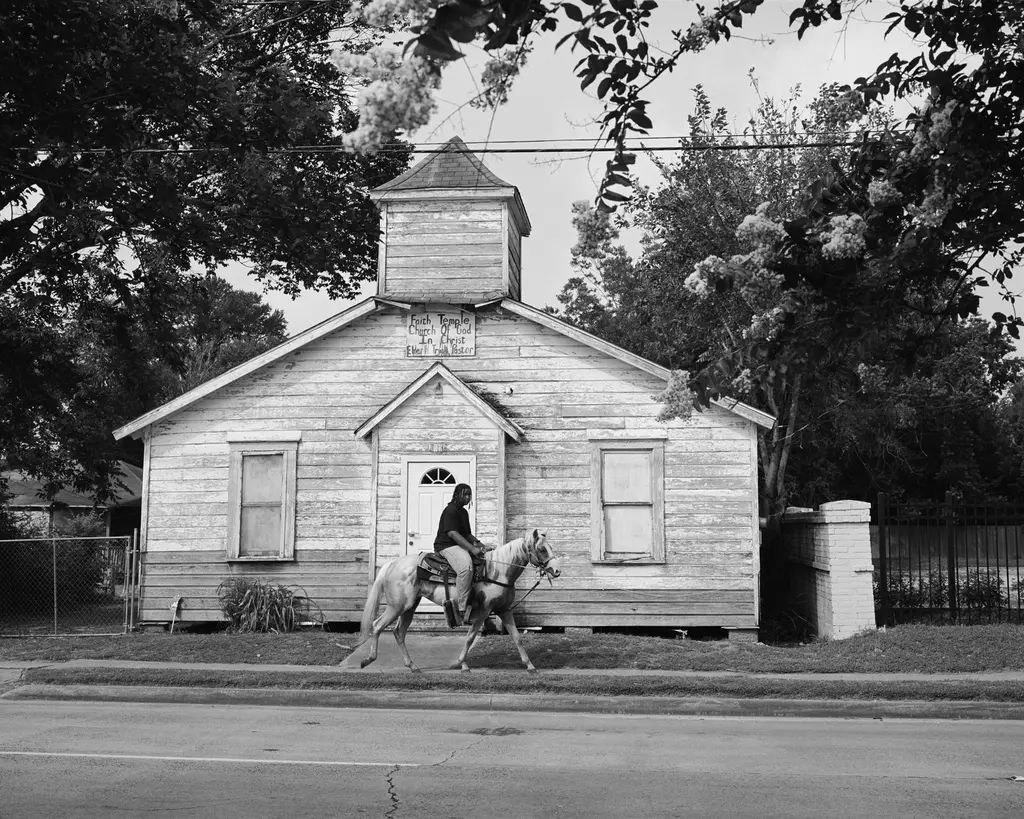How filmmaker Rob Brown ignored formal education to perfect his craft
- Text by Jack Kenyon
- Photography by Greg Funnell, José Sarmento de Matos

If a former child soldier moved to a London estate, how would the past haunt him? This is the question tackled by writer-director Rob Brown in his debut feature film Sixteen. Shot in just eighteen days, on a budget of £40,000 ($60,000), the film was nominated twice at the London Film Festival Awards – a winning endorsement for a thirty-year-old filmmaker who defied convention by striking out on his own.
Filmmaking wasn’t considered a viable career in the working-class area that Rob grew up in. “It’s a very frivolous thing when everyone else around you has a proper job,” he smiles. As a teen, Rob spent most nights soaking up classic cinema courtesy of Film Four’s late-night takeovers on British TV. “It opened my eyes, the way that cinema could give you a window into areas of life that you don’t experience,” he says.

Immersed in the worlds conjured by Scorsese and Tarantino, Rob started imagining worlds of his own. In 2005, using a VHS camera and with a budget of £125, he made Family Portrait, a story of domestic abuse and high tension that was nominated by the BBC for the New Filmmaker Award and broadcast on national television.
Having cut his teeth on his own DIY project, Rob decided to enroll in Film Production and Cinematography at Bournemouth University. But instead of partaking in first-year debauchery, he spent his evenings working at Blockbuster Video, studying and saving. “That was as useful as film school,” says Rob, “you could literally take home as many films as you could watch in a night.” As first year ended, he poured those savings into a short film, which went awry due to poor planning. “That failure in one sense scarred me a bit,” he says. “But it also really taught me what’s important in making a film.”

Two years later, Rob watched his coursemates make similar mistakes with their graduation films, while he side-stepped carefully around the pitfalls. His final-year film, Echoes, told the harrowing story of a sex trafficker confronted with a moral dilemma. It impressed an agent who signed Rob before graduation. But film work was hard to come by. “Things felt really hopeless,” says Rob, of a period marked by odd jobs in bars and some youth work with young offenders. “I couldn’t see a point where I would be able to make a feature.”
Events righted themselves when Rob became a Media Practice lecturer at Bath Spa University, where he was supported with a grant of £40,000 to make his first feature. Squeezing his tiny budget into eighteen days of filming, he won a place at the London Film Festival – but faced a serious obstacle: Sixteen needed more work to make the submission deadline, and they had run out of money. Rob turned to Kickstarter for the final £15,000. “It was probably the most stressful month of my life,” he says. “In one sense, it’s amazing being able to reach out to an audience, but I don’t like asking people for money.”

Rob has seen film school from both sides, as tutor and tutee. But is formal education essential these days? “I don’t think so,” he says. “It’s not necessarily about what the lecturers teach you, it’s about you being around lots of other people who are passionate about making films.”
Storytellers are often advised to write what they know – a slice of wisdom Rob has routinely ignored. His films feature complex characters, alien to his own life experiences: child soldiers, prostitutes, people with autism. Instead of searching for narratives, he finds characters with depth and then builds a narrative around them. But he’s not prescriptive when students ask him for advice. The most important thing, says Rob, is finding your own voice.
“There are various ways you can do this,” he says. “There are some pitfalls you need to avoid, but there’s not some cookie-cutter way to making a film.”
This article originally appeared in How To Make It On Your Own, a handbook for inspired doers from Huck’s 50th Issue Special.
Subscribe today to make sure you don’t miss another issue.
Latest on Huck

Meet the trans-led hairdressers providing London with gender-affirming trims
Open Out — Since being founded in 2011, the Hoxton salon has become a crucial space the city’s LGBTQ+ community. Hannah Bentley caught up with co-founder Greygory Vass to hear about its growth, breaking down barbering binaries, and the recent Supreme Court ruling.
Written by: Hannah Bentley

Gazan amputees secure Para-Cycling World Championships qualification
Gaza Sunbirds — Alaa al-Dali and Mohamed Asfour earned Palestine’s first-ever top-20 finish at the Para-Cycling World Cup in Belgium over the weekend.
Written by: Isaac Muk

New documentary revisits the radical history of UK free rave culture
Free Party: A Folk History — Directed by Aaron Trinder, it features first-hand stories from key crews including DiY, Spiral Tribe, Bedlam and Circus Warp, with public streaming available from May 30.
Written by: Isaac Muk

Rahim Fortune’s dreamlike vision of the Black American South
Reflections — In the Texas native’s debut solo show, he weaves familial history and documentary photography to challenge the region’s visual tropes.
Written by: Miss Rosen

Why Katy Perry’s space flight was one giant flop for mankind
Galactic girlbossing — In a widely-panned, 11-minute trip to the edge of the earth’s atmosphere, the ‘Women’s World’ singer joined an all-female space crew in an expensive vanity advert for Jeff Bezos’ Blue Origin. Newsletter columnist Emma Garland explains its apocalypse indicating signs.
Written by: Emma Garland

Katie Goh: “I want people to engage with the politics of oranges”
Foreign Fruit — In her new book, the Edinburgh-based writer traces her personal history through the citrus fruit’s global spread, from a village in China to Californian groves. Angela Hui caught up with her to find out more.
Written by: Katie Goh

